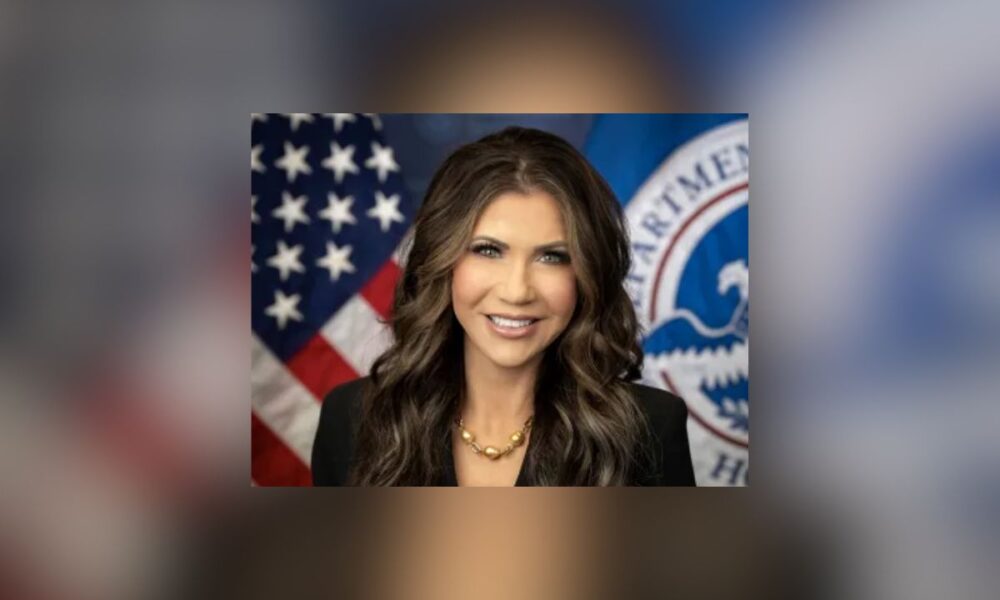Homeland Security Secretary Kristi Noem accused CBS News of “shamefully” editing her remarks about an alleged MS-13 gang member, fueling renewed scrutiny over the network’s handling of politically charged stories.
Noem said a portion of her Sunday interview on Face the Nation about Kilmar Abrego Garcia, a Salvadoran national deported earlier this year, was clipped to omit graphic details about his alleged criminal background. She posted the uncut exchange online, claiming CBS tried to “whitewash” the dangers Garcia posed.
“This individual was a known human smuggler, a MS-13 gang member, an individual who was a wife beater, and someone who was so perverted that he solicited nude photos from minors, and even his fellow human traffickers told him to knock it off,” Noem said in the unaired clip.
She added, “So he needs to never be in the United States of America, and our administration is making sure we’re doing all that we can to bring him to justice.”
This morning, I joined CBS to report the facts about Kilmar Abrego Garcia. Instead, CBS shamefully edited the interview to whitewash the truth about this MS-13 gang member and the threat he poses to American public safety.
Watch for the part of my interview that @CBS tried to… pic.twitter.com/28fsGZug48
— Secretary Kristi Noem (@Sec_Noem) August 31, 2025
CBS Defends Edits
A CBS spokesperson told the New York Post the segment was “edited for time and met all CBS News standards,” adding that the full interview and transcript were made available online.
History of CBS Controversies
The dispute follows other controversies involving CBS programming. Last year, 60 Minutes faced criticism after a segment on Texas abortion laws included disputed claims about medical training. Texas Scorecard reported that doctors interviewed for the broadcast misrepresented residency programs at UT Southwestern, alleging the show did not properly fact-check the allegations made by subjects on the program.
In July, CBS parent company Paramount Global agreed to pay up to $30 million to settle a lawsuit with President Donald Trump, who alleged a 60 Minutes interview with then–Vice President Kamala Harris had been deceptively edited. Under the settlement, transcripts of future candidate interviews must be released after airing, The Dallas Express reported.
Critics have also pointed to the network’s history, including the 2004 controversy known as “Rather-gate,” when 60 Minutes relied on fake documents about President George W. Bush’s National Guard service. The documents had been produced with a typeface from Microsoft Word and could not have been produced on a typewriter from the Vietnam War era. The fallout led to the resignation of longtime anchor Dan Rather.
Regulatory Debate
The Federal Communications Commission maintains a longstanding policy against “news distortion,” though its jurisdiction is limited to local broadcast affiliates and requires proof of deliberate falsification. According to FCC guidance, the agency will not intervene in cases involving “mere inaccuracy or difference of opinion,” only in instances where evidence such as outtakes or written directives shows intentional deception.
President Trump, meanwhile, has repeatedly urged regulators to act. In recent weeks, he targeted ABC and NBC in social media posts, accusing them of being “an actual threat to our Democracy” and suggesting the FCC revoke their licenses. However, such a revocation could face constitutional hurdles if the action was taken as an act of censorship because of perceived journalistic bias, DX reported.


